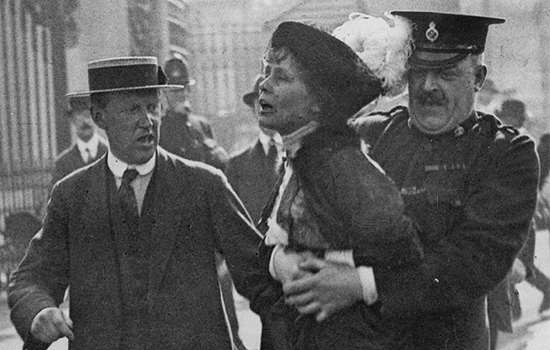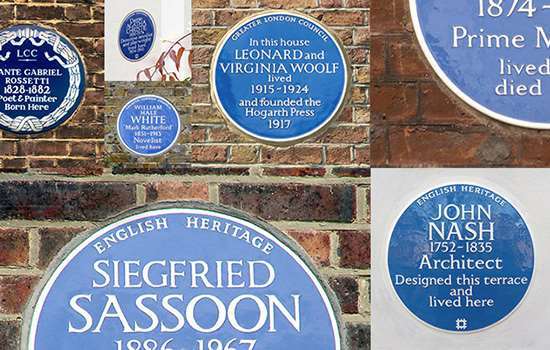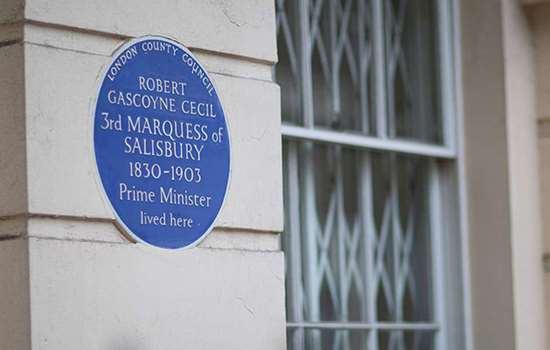CHADWICK, Sir Edwin (1801-1890)
Plaque erected in 1992 by English Heritage at 5 Montague Road, Richmond, TW10 6QW, London Borough of Richmond Upon Thames
All images © English Heritage
Profession
Public Health Reformer
Category
Medicine, Philanthropy and Reform
Inscription
SIR EDWIN CHADWICK 1801-1890 Public Health Reformer lived here
Material
Ceramic
The public health reformer Sir Edwin Chadwick is best known for highlighting the link between poor sanitation and outbreaks of disease in urban environments. In 1855 he retired to 5 Montague Road (formerly Montague Villas) in Richmond, where he is now commemorated with a blue plaque.
Early Career
Chadwick became involved in social reform in 1832, when he joined the newly formed Royal Commission into the Operation of the Poor Laws as an assistant. Appointed a Commissioner the following year, Chadwick played a key part in the passing of the Poor Law Amendment Bill in 1834. This bill stopped the provision of outdoor relief for able-bodied people, making workhouses the only form of social assistance available to many of the poor. In many areas, workhouse conditions were made deliberately harsh to deter people from claiming help.
Parliament passed the act quickly and with a large majority. The act was successful in reducing the cost of social relief, but its punishment of the poor was criticised at the time, including famously by Charles Dickens in his novel Oliver Twist (1838). Chadwick was also instrumental in seeing the Factory Act become law in 1833, which improved conditions for children working in factories.
Sanitation Reforms
In 1838, Chadwick started a government enquiry into sanitation conditions in British cities. This began his 15-year involvement with public health reform, for which he is best known. His Report on the Sanitary Condition of the Labouring Population of Great Britain (1842) combined statistics and graphic descriptions to convey his findings, which linked poverty with poor sanitation and disease:
the various forms of epidemic, endemic, and other disease caused, or aggravated, or propagated chiefly amongst the labouring classes by atmospheric impurities produced by decomposing animal and vegetable substances, by damp and filth, and close and overcrowded dwellings prevail amongst the population in every part of the kingdom
The report caused a sensation and created an impetus for reform. It led to the first Public Health Act of 1848 and the creation of a General Board of Health, with Chadwick being made a Commissioner. When cholera struck London in the board’s first year of operation, they responded with the emergency measures of waste removal and street cleaning. The 1848 Act has since been seen as the first step on the long road to the improvement of public health in Britain.
However, known for his combative and authoritarian nature, and having lost his political backing, Chadwick did not last long on the board. He was forced out of his post in 1854, as part of a general reorganisation.
Retirement to Richmond
In 1855 Chadwick settled, with a pension of £1,000 per annum, at 5 Montague Villas (now Montague Road), a semi-detached Italianate house dating to about 1840. His long retirement was spent advocating various initiatives that he regarded as being for the public good, such as state ownership of railways. He also made several unsuccessful attempts to win a seat in Parliament.
In 1869 Chadwick left Richmond for his last home, Park Cottage, in nearby East Sheen (now demolished). His contributions to public health were finally recognised with a knighthood in 1889, the year before he died. The Oxford Dictionary of National Biography states that his ‘achievements live on in every home and under every street in Britain’.


